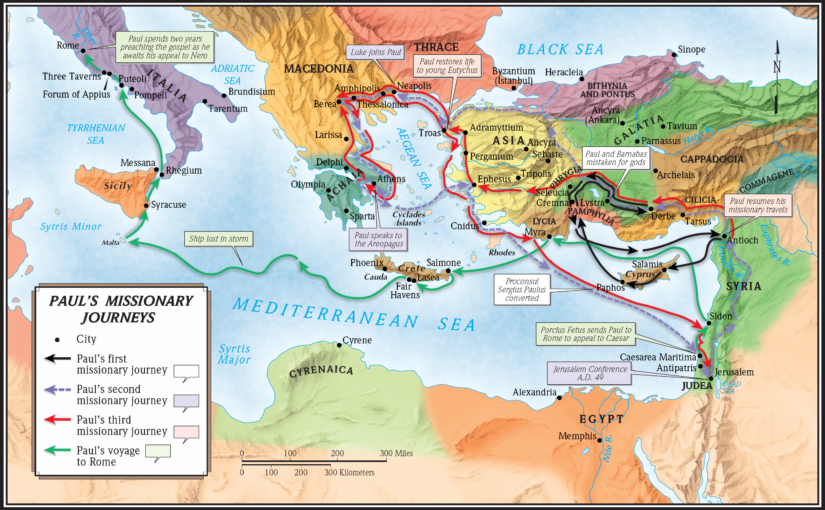My heart is in anguish within me; the terrors of death have fallen on me. Fear and trembling have beset me; horror has overwhelmed me. I said, “Oh, that I had the wings of a dove! I would fly away and be at rest. I would flee far away and stay in the desert; I would hurry to my place of shelter, far from the tempest and storm. ” -Psalm 55:4-8
Today’s reading: 2 Samuel 6; 1 Corinthians 16; Ezekiel 14; Psalm 55
The Bible always offered me something when I opened it. Sometimes it raised questions and other times it gave answers, but it always brought me closer to God. Problems often came from relying too much on me, and ignoring the tremendous importance of serving God and other people in my life.
For no one is cast off by the Lord forever, though he brings grief he will bring compassion, so great is his unfailing love. For he does not willingly bring affliction or grief to anyone. – Lamentations 3:31-33.
These verses sounded too good to be true. And while I can’t say I completely understood them, they suggested sometimes we bring difficulties upon ourselves, especially when we turn away from God. But through it all, God’s love remains. Sometimes however, we experience separation from our most important relationships. I have often learned the hard way, but eventually came to see that it made more sense to seek God above my own understanding, regardless of the situation. Still, sometimes, I foolishly chose to turn away, often when I needed Him the most.
Of what value were my earthly goals over those of heaven? When I put my faith in my abilities, any victory I might enjoy would be to my glory and not God’s. Not surprisingly, this approach was typically the beginning of a vicious cycle. A cycle triggered by aspirations based on self reliance.
Obsessing over things, having too much urgency and too many variables was never good. These things were usually followed by my increasing loss of perspective. And when that was lost, so was my balance, causing my other responsibilities and relationships to become urgent; creating more problems. As the pressure mounted, a state of fight or flight began to kick-in.
With stress came the hormonal cascade of chemicals designed to save me, and they began to kill me. Cortisol flooded my body and my mind with fear and loathing. The heightened desire to escape in the elation or the comfort of dopamine created other opportunities for bad choices; then more stress. Before I knew it I was trapped in a nuerro-spiritual whirlpool, one that was easy to drown in. I wasn’t designed for this and no matter how hard I tied, or how capable and smart I thought I was, when I took the place of God as the lord of my life, everything got messed up.
The more I learned to rely on God; to take my time patiently waiting on God — the more things fell into place. By trusting God more, I learned to trust others more, and when I worked with teams made up of talented, honest people of high integrity, anything was possible. Ultimately the glory had to be God’s, and in that truth, everything started to work out.
The more I read the Bible the more evident it was that God wanted us to know Him. And in that knowledge, in that relationship, it was possible to discover the life we were made to live. A life of adventure, danger, mystery and truth; of challenges and peace, of sorrows and grace. God offered everyone amazing grace.
If the path we are called to in the Bible is true, and everything I have experienced says it is, then I believe we can have it all. When we ask for the faith to truly know God, then we are able to experience God’s grace. His mercy makes us whole, allowing us to receive the power of His Holy Spirit, and in that relationship we find the strength to surrender our will to His! God’s gift of salvation, in a sense, is really salvation from ourselves. This gift is offered to everyone through the death, burial and resurrection of Jesus Christ who came to our world as God in the flesh, to reconcile sin and offer you and me a righteous relationship with God and each other.
Thank you God that I can know you and that you know me. Amen.










 We had been living in a rooftop apartment in Paris, undoubtably one of the most magnificent cities in the world. Still, it was good to be heading home. Past the Chicago Metro fringe, at that perfect time in the early evening when the stark contrast of the green fields under the big blue sky seemed unreal.
We had been living in a rooftop apartment in Paris, undoubtably one of the most magnificent cities in the world. Still, it was good to be heading home. Past the Chicago Metro fringe, at that perfect time in the early evening when the stark contrast of the green fields under the big blue sky seemed unreal.
